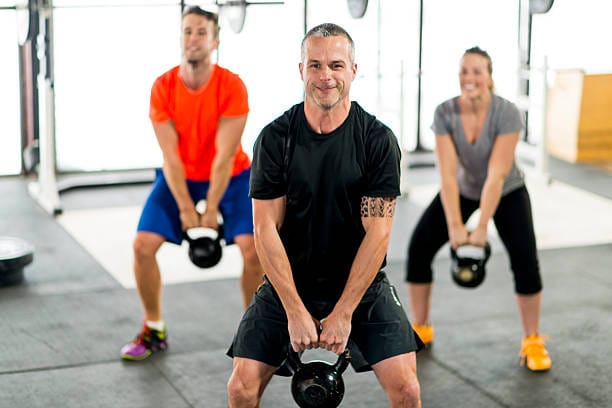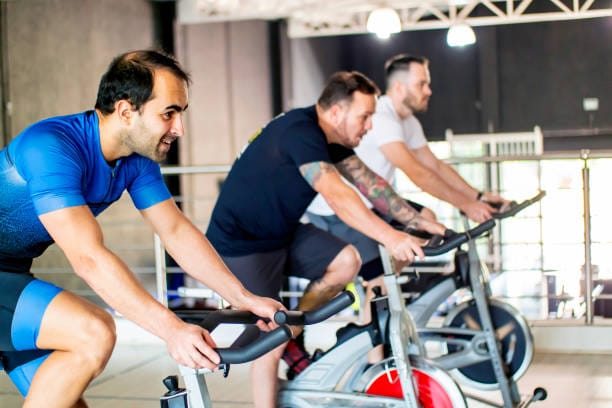Importance and Benefits of Physical Health and Fitness

Importance and Benefits of Physical Health and Fitness. Health is essential to complete mental, physical, and social well-being, not only the absence of disease. Fitness is the ability to execute daily functional activities with optimal performance, endurance, and strength to manage minimal disease, fatigue, stress, and reduced sedentary behavior.
Health and fitness go hand in hand, each influencing the other. Proper nutrition, regular exercise, and mental fitness are all essential components of a healthy lifestyle. By prioritizing these aspects, individuals can work to achieve and maintain optimal levels of health and wellness, leading to a happier and more fulfilling life. Trusted source
Health and fitness exercises are essential to maintaining and improving overall health. They offer numerous physical, mental, and emotional benefits, contributing to a higher quality of life. Here are some essential reasons to emphasize the importance of health and fitness exercises:
What is Health and Fitness:

Health and fitness are essential components of a good and fulfilling life. These two concepts are intertwined, as overall health significantly affects one’s ability to achieve and maintain physical fitness. Maintaining good health involves caring for your body through proper nutrition, regular exercise, and managing your physical and mental well-being. Trusted source
Importance of Physical Health:

Physical health refers to the overall health and fitness of an individual’s body, including factors such as nutrition, exercise, sleep, hydration, and preventive care. It is the foundation on which our daily lives are built.
Proper nutrition fuels our bodies, exercise strengthens our muscles and cardiovascular system, and adequate sleep makes us young again. Physical health coaches to the overall health and fitness of an individual’s body and its ability to function effectively. It encompasses various aspects of the body’s condition, including:
1. A Balanced Diet:

Eating a balanced diet with various nutrients is essential for good health, fitness, and physical well-being. Proper nutrition gives the body the energy and basic nutrients it needs to function optimally, and it plays a vital role in promoting good health.
A balanced diet rich in vitamins, minerals, and nutrients is essential for the proper functioning of the body. It provides energy for daily activities, supports the immune system, and helps prevent various diseases. A diet rich in vegetables, fruits, lean proteins, and whole grains can contribute to long-term health and wellness.
2 . Regular Physical Activity:

Regular physical activities are essential for maintaining health and fitness. Exercise helps strengthen muscles, improve cardiovascular health, maintain a healthy weight, and reduce the danger of chronic disease. Daily physical activity is another vital aspect of both health and fitness.
Routine exercise helps improve cardiovascular health, increase muscle strength, and maintain a healthy weight. Physical activity also releases endorphins and natural mood lifters, promoting mental well-being and reducing stress. Regular exercise, whether organized exercise, sports, or daily activity, is essential for overall health and wellness.
3. Get Enough Sleep:
Getting acceptable quality sleep is essential for physical health. Sleep permits the body to rest, repair, and recharge. Chronic lack of sleep can lead to a range of health problems.
4. Stay Hydrated:
Staying adequately hydrated is vital for maintaining bodily functions. Water is essential for digestion, circulation, temperature regulation, and many other physical processes.
Maintaining proper hydration is crucial if you’re a dedicated athlete or enjoy leisurely exercising. Adequate hydration involves consuming the appropriate amount of water before, during, and after your workout.
Water is critical in regulating body temperature, lubricating joints, facilitating nutrient transport for energy, and overall well-being. Your body’s performance may suffer without proper hydration, leading to fatigue, muscle aches, dizziness, or more severe symptoms. Stay hydrated to optimize your physical capabilities and promote overall health.
Remaining hydrated ensures our body functions smoothly, while preventive care protects against potential health problems.
5. Preventive Care:
Regular check-ups with healthcare professionals and preventive measures like vaccinations and screenings can help detect and address health issues early, preventing them from becoming more serious.
6. Avoiding Harmful Substances:
Avoiding or moderating the use of harmful substances like tobacco, alcohol, and recreational drugs is essential for physical health. These substances can harm various organs and systems in the body.
7. Personal Hygiene:
Proper personal hygiene practices, such as regular handwashing and dental care, help prevent the spread of infections and maintain overall health.
8. Managing Chronic Conditions:
Managing individuals with chronic health conditions through medication, lifestyle changes, and regular medical supervision is crucial.
9. Safety:
Another aspect of physical health is avoiding accidents and injuries. It includes practicing safety measures while driving, playing sports, and working.
10. Environmental Factors:
The physical environment, including air and water quality, can significantly impact physical health. Exposure to pollutants and toxins can lead to health problems.
11. Genetic Factors:
While genetics play a role in an individual’s health, lifestyle choices and environmental factors often significantly influence overall physical health.
Maintaining good physical health involves healthy behaviors, regular medical check-ups, and a supportive environment. It enhances the quality of life, reduces the risk of developing chronic diseases, and promotes longevity.
12. Weight Management:
Regular exercise helps burn calories and maintain a healthy weight, declining the risk of obesity-related diseases.
13. Cardiovascular Health:
Aerobic exercises like jogging, swimming, and cycling strengthen the heart, lower blood pressure, and reduce the risk of heart disease.
14. Muscle and Bone Strength:
Resistance training exercises build muscle mass and enhance bone density, reducing the risk of osteoporosis.
15. Joint Health:
Exercises like stretching and yoga improve flexibility and joint mobility, reducing the risk of injury.
Mental Health:

Mental health is closely related to physical health and fitness, and they are interconnected. By prioritizing these aspects of physical health and making informed lifestyle choices, we can increase our strength, reduce our risk of chronic disease, and live fuller lives.
Mental health is an essential part of the equation. A positive mindset, stress management, and emotional fitness contribute to overall health and fitness. Anxiety, stress, and other mental health challenges can significantly affect physical health and wellness.
Seeking help through meditation, mindfulness, or therapy can help maintain a healthy balance between mind and body. While mental health is often considered separately, it profoundly impacts physical health and fitness. High levels of anxiety, stress, and depression can lead to physical health and fitness nuisances if left untreated.
- Stress Reduction:
Exercise triggers the release of endorphins, which reduce stress and improve mood.
- Anxiety and Depression:
Regular physical activities appear to decrease symptoms of depression and anxiety and boost mental well-being.
- Cognitive Function:
Exercise can enhance cognitive abilities, including memory, attention, and problem-solving skills.
- Better Sleep:
Engaging in regular exercise can help improve the quality and duration of sleep. Trusted source
Disease Prevention:

- Chronic Disease:
Physical activity can lower the risk of chronic conditions like type 2 diabetes, stroke, and certain cancers.
- Immune System:
Regular exercise increases the immune system, making the body more resilient to illnesses.
- Longevity:
Regular exercises are associated with a longer lifespan and a higher quality of life in later years.
- Energy and Productivity:
Exercise increases energy levels and productivity by improving physical stamina and mental alertness.
- Weight Maintenance:
Staying physically active helps prevent weight gain and aids in weight loss with a healthy diet.
- Social Interaction:
Group fitness activities and sports promote social interaction and contribute to a sense of community and belonging.
- Self-Esteem and Confidence:
Achieving fitness goals can boost self-esteem and confidence, promoting a positive self-image.
- Lifestyle Habits:
Engaging in regular exercise often leads to adopting healthier lifestyle habits, including better nutrition and reduced use of harmful substances.
The impact of social media on teenagers
How do we keep children healthy and prevent obesity?
What Are The Health Benefits of Home Gardening?
Better Quality of Life:

Health and fitness exercises can improve physical, mental, and emotional well-being and lead to a higher quality of life.
It’s essential to note that the type and intensity of exercise should be tailored to individual fitness levels and goals. Always consult a professional healthcare or fitness expert before starting a new exercise program, especially if you have underlying health conditions or are new to exercise. Additionally, finding enjoyable and sustainable forms of exercise is vital to maintaining long-term fitness and reaping these benefits.
Maintaining a healthy lifestyle included a combination of regular exercises, a balanced diet, adequate sleep, and stress management. Here are some exercises you can incorporate into your routine to help you lead a healthy lifestyle:
Cardiovascular Exercises:

Running: Whether outdoors or on a treadmill, jogging is a great way to enhance cardiovascular fitness.
Cycling: Biking is a low-impact exercise that can be enjoyable and effective for cardiovascular health.
Swimming: Swimming provides a full-body workout and is gentle on the joints.
Jump Rope: Jumping rope is a straightforward and effective way to increase your heart rate.
Dancing: Dancing is fun and increases cardiovascular fitness while enjoying music.
Strength Training:

Weightlifting: Lifting weights helps build muscle mass, increase metabolism, and improve bone density.
Bodyweight Exercises: Push-ups, squats, lunges, and planks are practical bodyweight exercises for strength.
Resistance Bands: Resistance bands are versatile tools for strength training used at home or the gym.
Flexibility and Mobility:

Yoga: Yoga helps improve flexibility, balance, and mental well-being.
Pilates: Pilates focuses on core strength, flexibility, and posture.
Stretching: Incorporate daily efforts to maintain flexibility and prevent muscle stiffness.
Balance and Stability:

Tai Chi: Tai Chi is a low-impact exercise that improves balance and coordination.
Balance Exercises: Standing on one leg, balancing on a stability ball, or using balance boards can enhance stability.
High-Intensity Interval Training (HIIT):

HIIT workouts involve short bursts of intense exercises followed by brief rest periods, helping improve cardiovascular fitness and burn calories.
- Functional Fitness:
Incorporate exercises that mimic everyday movements to improve overall fitness and prevent injury.
- Outdoor Activities:
Hiking, kayaking, and playing sports like tennis or basketball are enjoyable ways to stay active.
- Mind-Body Exercises:
Practices like meditation and mindfulness can reduce stress and improve overall well-being.
- Group Fitness Classes:
Joining fitness classes such as spinning, Zumba, or circuit training can add variety and motivation to your routine.
- Regular Walking:
Walking is one of the simplest yet most effective forms of exercise. Aim to incorporate walking into your daily routine.
Remember to start slowly, especially if you’re new to exercises, and gradually increase the intensity and duration. It’s also crucial to consult with a professional healthcare before starting a new exercise program, especially if you have underlying health conditions. Maintaining a diet, staying hydrated, getting enough sleep, and managing stress are crucial to a healthy lifestyle.













